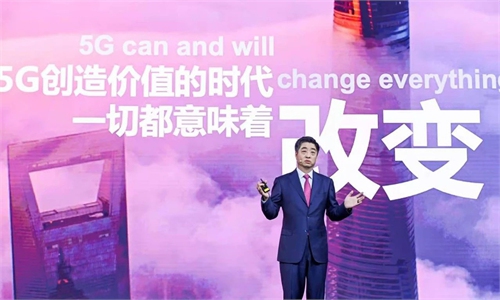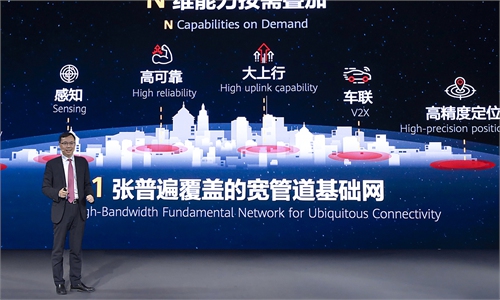SOURCE / PRESS RELEASE
Huawei rolls out full series of 5G products aimed at ‘1+N’ target networks
Huawei 5G solutions
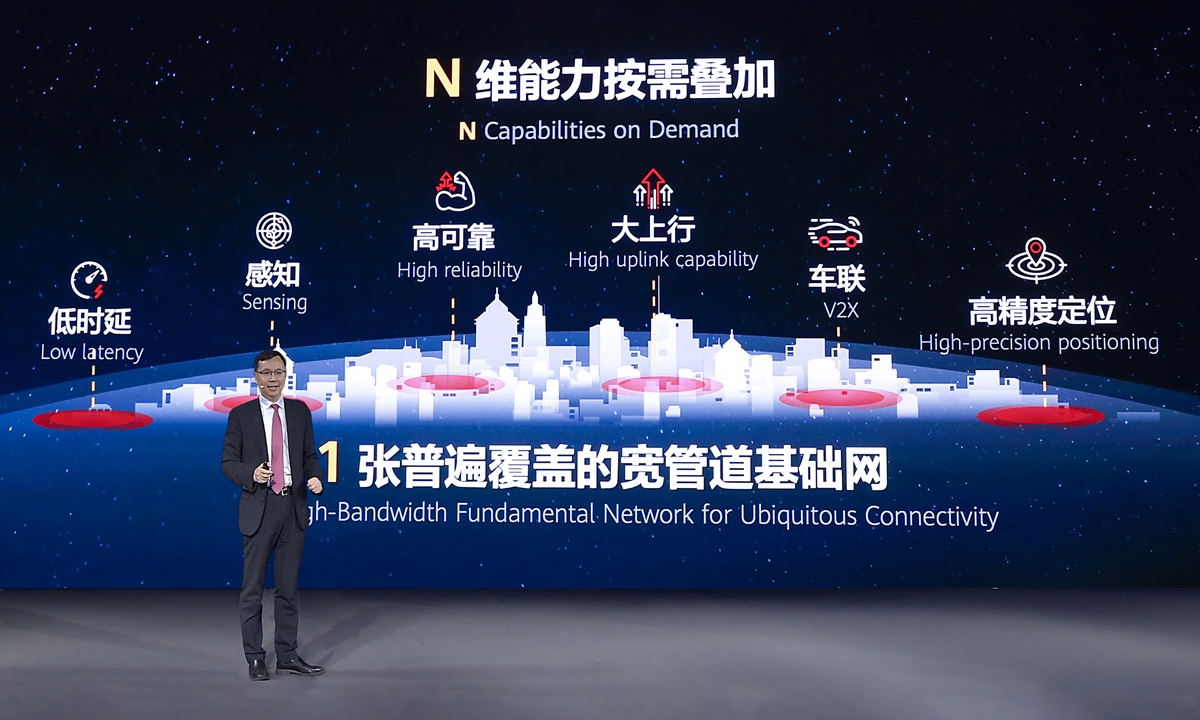
Yang Chaobin, President of Huawei Wireless Network Solution Photos: Courtesy of Huawei
At the 2020 Global Mobile Broadband Forum (MBBF) in East China's Shanghai Municipality on Friday, Yang Chaobin, President of Huawei Wireless Network Solution, unveiled the future-oriented "1+N" 5G target networks and released a full series of 5G solutions for building simplified "1+N" 5G networks."To embrace the approaching golden decade of 5G, we need to evolve our networks toward 5G with full spectrum and build one high-bandwidth simplified target network that ensures ubiquitous connectivity with on-demand overlay of 'N' capabilities," said Yang.
5G technology's future application in various industries will feature more diversified services and differentiated requirements in comparison to 4G, according to analysts.
The connection of people requires a contiguous high-bandwidth network to provide a premium experience at greatly reduced per-bit costs. The connection of things also requires ubiquitous coverage to support the massive connectivity of Internet of Everything (IoT) terminals. Industry connections, which are applied first in local scenarios, require capabilities such as flexible high uplink, low latency, and high-precision positioning to be deployed on demand, analysts said.
To meet these diversified demands, the Chinese tech giant's 5G solution plan aims to build a ubiquitous high-capacity foundation network, with high intermediate frequency (IF) bandwidth as its core and other frequency bands to achieve differentiated benefits and on-demand overlay of "N" capabilities - diversified application capabilities for different industries scenarios.
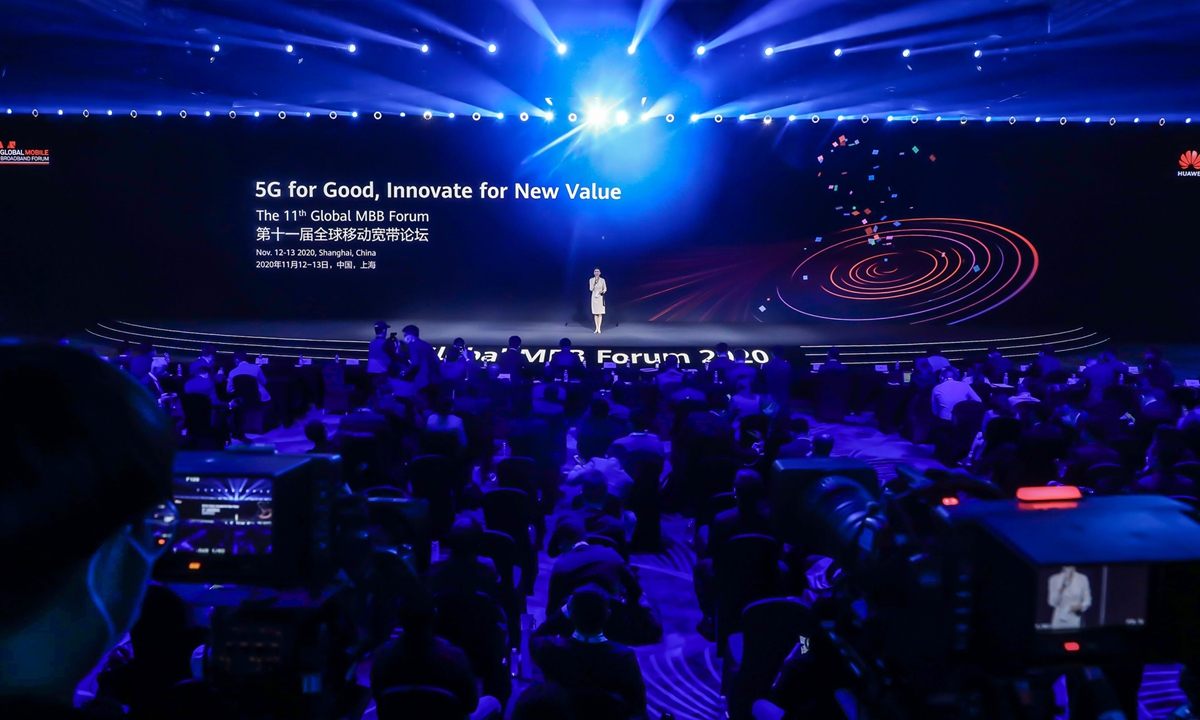
Panorama of the 2020 Global Mobile Broadband Forum
One foundation networkThe cost per bit of 5G networks must be reduced to offer a continuous cross-generation user experience. The combination of high IF bandwidth and Massive MIMO (M-MIMO) is the key to developing a high-bandwidth network to achieve ubiquitous connectivity.
This year, Huawei released Blade AAU Pro, which supports 64T64R M-MIMO and Sub-3 GHz full-band. The solution comes with the unique "transparent" antenna technology which simplifies deployment and thereby reduces costs.
For markets in which high-bandwidth TDD is hard to come by or the capacity load is heavy, Huawei launched the industry's first FDD M-MIMO, which substantially improves cell capacity to three to four times that of 4T4R networks. The innovative metamaterial dipole design and ultra-small PIM-free filter technology enable FDD M-MIMO to have an amplitude width of less than 500 mm and engineering specifications equivalent to TDD M-MIMO.
"Huawei's wide array of IF M-MIMO solutions and advanced software algorithms can help operators build an IF-oriented high-bandwidth foundation network for ubiquitous connectivity that delivers optimal user experience," Yang added.
'N' capabilities
While running basic services on high-bandwidth IF bands, operators can also develop differentiated advantages by using other spectrums, such as those assigned for FDD or Super Uplink. But this poses challenges such as fragmented spectrums, diversified channels and sectors, and varying spectrum lifecycles. "To innovate 'N' capabilities, we need to simplify deployment while maintaining diversity and order," said Yang.
At MBBF 2020, Huawei released its highly integrated Blade Pro portfolio for FDD applications. This portfolio includes the industry-acclaimed ultra-wideband RRU, which slashes the number of required devices by two thirds by integrating three low or three intermediate FDD bands into one box, greatly simplifying deployment.
Huawei also launched a series of simplified solutions to supplement 5G coverage. Easy Macro 3.0 is the industry's first application that carries FDD 4T4R and TDD 8T8R in one box, and it also supports simplified deployment of UL/DL decoupling. Book RRU 3.0 realizes both TDD and FDD 4T4R. For indoor coverage, the LampSite EE suite provides B2B capabilities, such as D-MIMO, Super Uplink, and high-precision positioning, to accommodate differentiated services in varying scenarios.
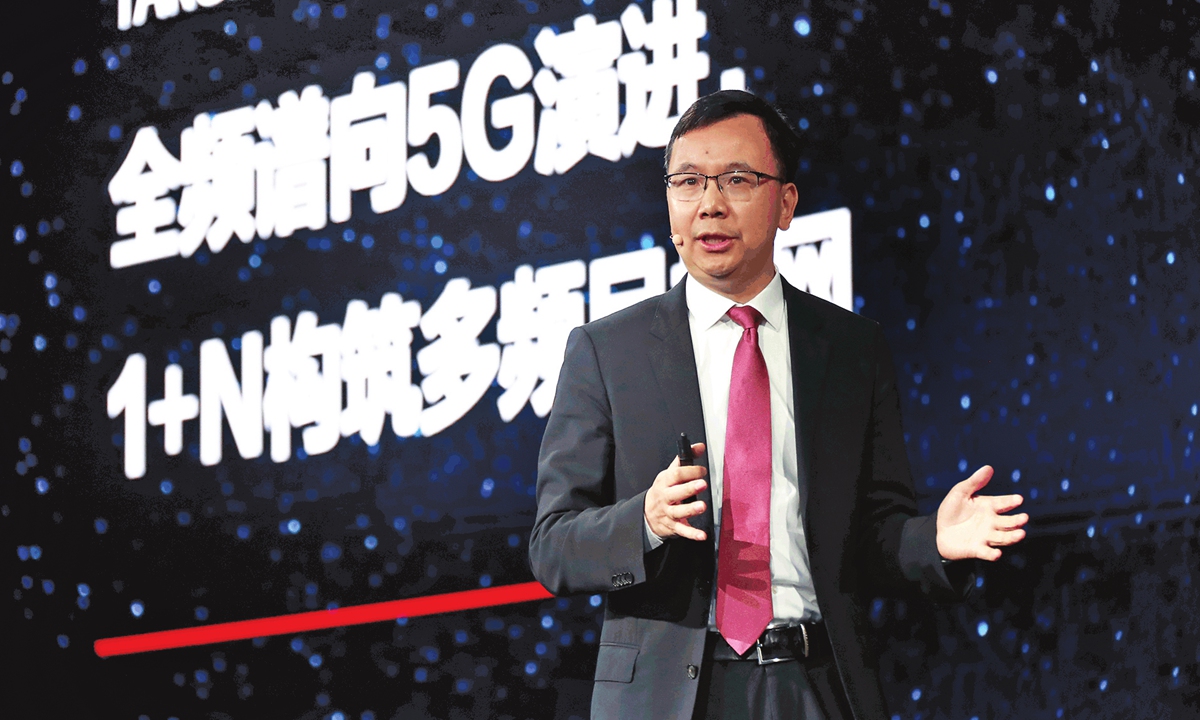
Yang Chaobin, President of Huawei Wireless Network Solution
Autonomous driving networkEfficient O&M is a huge challenge in building "1+N" target networks. One challenge is effectively targeting capabilities for B2B and maintaining 2G, 3G, 4G, and 5G simultaneously. Another challenge is balancing user experience and energy consumption or on-demand slicing and spectral efficiency. Fully optimizing capabilities such as latency, bandwidth, uplink, and downlink is also difficult. AI-assisted autonomous driving of networks will be the optimal way to address the challenges O&M poses in the 5G era.
To address these challenges, Huawei also developed a new series of solutions powered by its MBB Automation Engine (MAE) autonomous driving network.
The 5GtoB suite enables intelligent and precise planning, simplified provisioning on demand, and proactive network O&M. It realizes a perfect alignment with industry Service Level Agreement (SLA) requirements, adaptive deployment in complex scenarios, and real-time SLA monitoring and fault prediction, facilitating digital layout of the 5G B2B industry.
The 5G WTTx suite provides reliable service provisioning checks, precise network capacity warnings and capacity expansion guidance as well as network evaluation and line management, greatly improving the O&M efficiency of 5G WTTx services.
PowerStar, with the help of AI, implements intelligent carrier management based on traffic, reverse mobility load balancing (MLB) energy saving based on energy efficiency, and hierarchical energy saving based on key performance indicators (KPIs). It greatly reduces network energy consumption through coordinated energy saving between multiple frequency bands and radio access technologies. Test results on commercial live networks reveal that PowerStar brings "1+N" energy efficiency and optimal user experience, reducing energy consumption by 15 percent and increasing network traffic by 10 percent.
